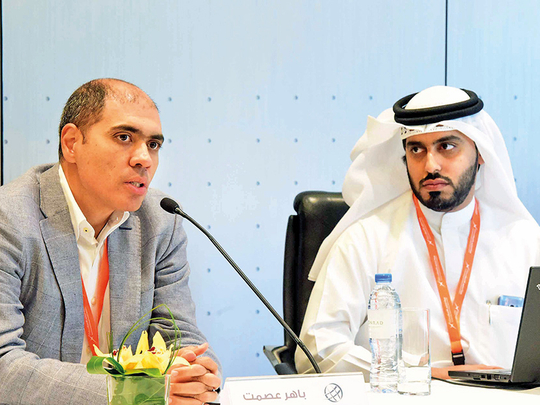
Dubai: The Telecommunications Regulatory Authority (TRA) of the UAE is keen to play the role of an accelerator in supporting entrepreneurs, start-ups and innovation in the country.
The regulatory authority launched a “100x” programme on Sunday whereby TRA will select the best 100 tech start-up ideas from tech incubation programmes in the UAE.
Abdul Rahman Al Marzouqi, manager for internet advancement policies and programmes department at TRA, said at the “Fast Forward Summit” that the programme is in collaboration with other tech incubators, government and non-governmental entities in the UAE.
“There are 15 partners already and more will be added in the future. Every company we spoke to are interested in supporting the programme,” he said.
Some of the tech incubators in the UAE include Imapct Hub, in5, Dtec, AstroLabs, Dubai Silicon Oasis Founders, Hamdan Innovation Incubator and Dubai Startup Hub, apart from many accelerators.
Al Marzouqi said that out of the 100 start-ups, 50 per cent will be from the UAE nationals and the other 50 per cent from expats with a valid UAE residence visa.
Collaborative efforts
Hamad Obaid Al Mansouri, TRA Director General, said that the authority is working to enable the ICT sector in the UAE with collaborative efforts with private sector in multiple areas such as internet policies and standardisation, internet advancement and eCommerce.
“Recent studies show that the majority of global CEOs believe the next three years will be more critical for their industry than the last 50 years. This is not only because of the fast evolving advancements. The critical element lies in the ‘creative destruction’ or the constructive restructuring, which is the result of dramatic changes in economy, along with the emergence of new business models,” he said.
He added that companies spending methods have changed to focus on database centres, algorithms and smart solutions, instead of investing in building factories or developing products.












